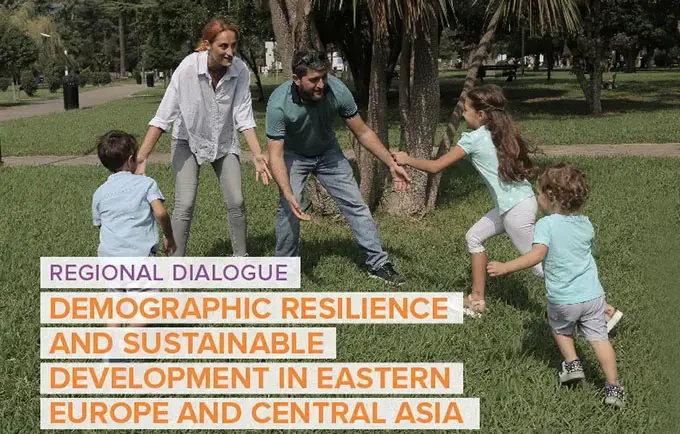ISTANBUL – The countries of Eastern Europe must step up investments in health and education systems to get ready for dealing with ageing populations, experts said at a symposium organized by UNFPA on 4 October 2013 in the margins of the International Istanbul Initiative on Ageing.
There is “no uncertainty” that population ageing is affecting the region, said Anne Goujon of the Vienna-based Wittgenstein Center for Demography and Global Human Capital. But this is not necessarily a bad thing, she added, as older people, if well-educated and healthy, can be valuable resources for the economy and society at large: “Studies show that for example at the company level a good mix of younger and older employees is most productive.”
But as Asghar Zaidi, of the University of Southampton, pointed out, the countries of Eastern Europe (and Central Asia) are ill-prepared for this major demographic shift. Nearly all of the region’s countries included in a new global ageing index find themselves in the lower half of the ranking, including the Russian Federation, Ukraine and Moldova.
The poor health of older people in these countries is the main reason why they rank so low, explained Zaidi, one of the authors of the Global AgeWatch Index, which was launched on 1 October 2013. He said the index can be helpful in directing policy-makers to areas that need more investment, such as the pension, health or education system.
“The index also shows that money is not everything – what counts is smart and focused spending,” Zaidi said, stressing that a number of low- and middle-income countries can be found in the upper half of the ranking.
Wittgenstein’s Goujon said the negative effects of ageing have been exaggerated: “They can be largely ameliorated by two policies: upgrading skill levels and increases in labor force participation.”
The example of Moldova, presented by Laura Grecu of the Ministry of Labour, Social Protection and Family, illustrates some of the difficulties faced in the region: although pension age has been raised and life expectancy is increasing, the active work population has dropped over the past few years, largely due to migration, putting strains on the country’s pension system.
Grecu stressed that in addressing these challenges, older people must be involved in discussing the policies that affect them, so as to ensure that their needs are taken into account.




